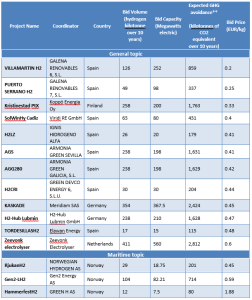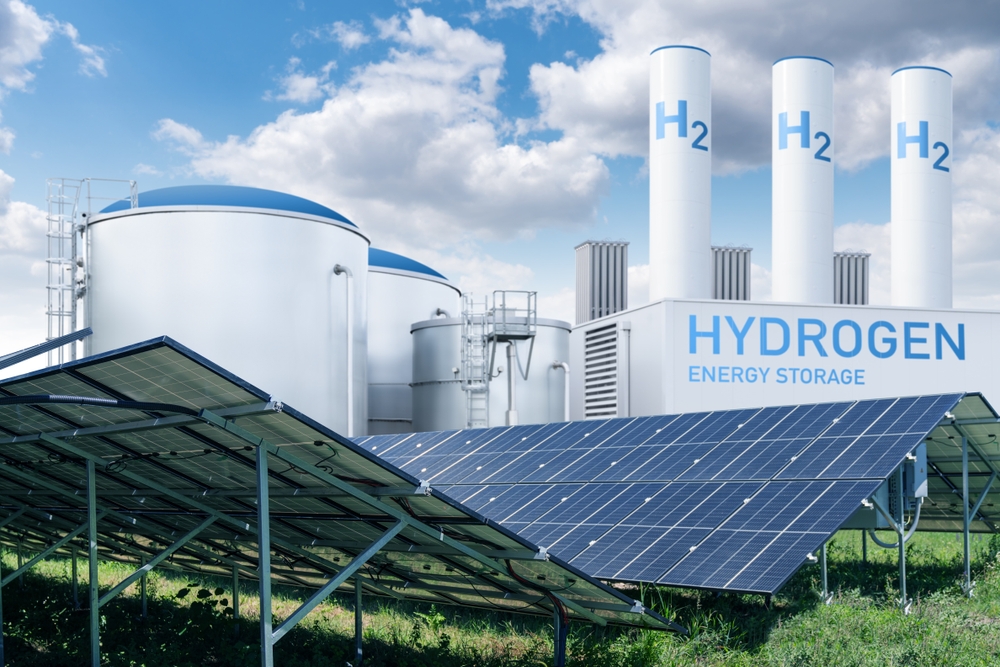The European Commission has announced allocations of large-scale renewable hydrogen projects ranging from 992 million euros to 15.
The five-country projects plan to produce 2.2 million tonnes of renewable hydrogen over the next decade. This is enough to prevent more than 15 million tonnes of carbon dioxide emissions.
This strategic move is part of a broader push for the EU to reduce its dependence on key sectors for decarbonization, such as fossil fuels and transportation, chemicals, ammonia and methanol production.
Why are the important reasons for increasing renewable hydrogen capacity?
As Europe faces the dual challenges of climate change and energy uncertainty, expanding renewable hydrogen production is no longer an option. That is essential.
Hydrogen, made from renewable electricity (such as solar cells and wind), does not release co-res when used, making it an ideal alternative to fossil fuels in sectors that are difficult to electrify, such as steel transport, long-distance transport, and maritime logistics.
By investing in this green fuel, the EU can reduce its dependence on imported oil and gas, particularly from unstable or unfriendly regions.
Furthermore, the transition to a hydrogen-based economy promises to significantly increase green work and innovation. Development of the domestic hydrogen industry means construction of electrolyser plants, developing storage solutions, and training new generations of clean energy experts.
Accelerating the renewable hydrogen economy
The groundbreaking funds were awarded through the second auction of the European Hydrogen Bank (EHB). It is designed to reduce the cost gap between clean hydrogen and fossil-based alternatives.
With support of 8 million to 246 million euros per project over a decade, the grant will be configured as a fixed premium grant of 0.20 to 0.60 euros per kilogram for most projects, promoting rapid deployment and commercial viability.
The three selected projects are specifically targeted to the marine sector, supported by a dedicated budget of 96.7 million euros.
These hydrogen initiatives, including bunkering activities, receive subsidies of between 0.45 euros and 1.88 euros per kilogram, reflecting the high production costs in this gradual industry.
The project is as follows:

Central government will join the push
In parallel with EU-level initiatives, Spain, Lithuania and Austria are injecting renewable hydrogen projects up to 836 million euros with state funding, using a new model called “Auctions as auctions.”
This allows Member States to support eligible but unfinanced bids using the shared EU auction framework, reducing administrative burdens and expanding the scope of hydrogen-powered.
This flexible system is open to all EU countries and is ready to become a powerful tool for increasing renewable hydrogen capacity across the bloc.
Commenting on the investment, Climate Commissioner Wopke Hoekstra is a member of zero-zero and clean growth, saying, “The results of the second EU-wide auction of renewable hydrogen highlight both strong interest from the industry and the increased competitiveness of clean hydrogen in Europe.
“We can now support more projects and support them at very competitive prices. We also warmly welcome the joint efforts of Spain, Austria and Lithuania. Participation in their participation scheme as an auction demonstrates a common commitment to expanding hydrogen production across the association.”
Timeline and market expansion
All selected projects must sign a grant agreement with the European Climate, Infrastructure and Environmental Executive Agency (CINEA) by September or October 2025.
The project is then expected to achieve close financial achievements within 2.5 years and begin renewable hydrogen production within 5 years.
Successful producers will receive premium support for 10 years if the output is certified and verified as renewable.
The European Commission also confirmed plans for its third EHB auction at the end of 2025, backed by a budget of 1 billion euros and will soon launch a hydrogen mechanism.
A green future within reach
The European Commission’s latest funding round represents more than just a financial commitment. This is a declaration of the world’s leading intention in developing renewable hydrogen.
With industrial decarbonization, energy sovereignty and climate goals all on track, this inclusive approach could change the European energy landscape in generations.
As the EU is gaining momentum, the success of these early projects is important to prove the business case of renewable hydrogen and to ensure that Europe remains at the forefront of global green transitions.
Source link

